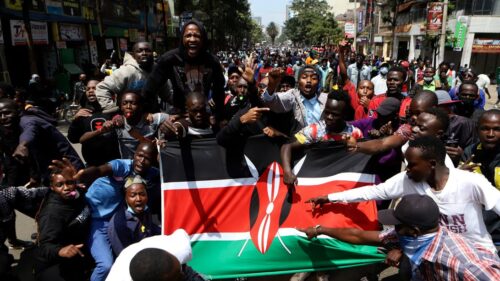
Why African Solutions Must Replace Colonial Debt Traps: Lessons from the Recent Kenya’s Youth Protest
The 2024 and 2025 mass protests by Kenyan youth against the Ruto government’s oppressive tax policies and its subservience to Western financial institutions like the IMF and World Bank are not just about economic discontent—they are a revolt against neocolonial exploitation. Historically, IMF/World Bank structural adjustment programs (SAPs) have crippled African economies, privatized essential services, and deepened poverty under the guise of “development.” These organizations keep giving loans to Kenya with tough conditions – like raising taxes, cutting education funding, and making basic goods more expensive. This has made life harder for regular Kenyans, especially young people who can’t find jobs. The IMF and World Bank have been doing this to African countries since the 1980s, claiming it helps fix economies, but it usually just makes foreign investors richer while making local people poorer. When Kenyans protested against these policies in 2024, especially against the new Finance Act that raised taxes, the government responded harshly. This shows how African governments often end up working against their own people to please foreign lenders. What is really needed are African solutions – like bringing back community-based economic systems where money stays in local hands, trading between African countries using their own currencies instead of dollars, and carefully checking all foreign debts to cancel unfair ones. Young Kenyans taking to the streets are not just angry about taxes – they are fighting against a system that keeps Africa dependent on Western money. Kenya’s situation is important because it shows what is happening across Africa: countries are still trapped in colonial-style relationships with Western financial institutions, even though they are supposedly independent. The solution is not to keep taking loans with harmful conditions, but to build economic systems that actually work for African people.

Use the form below to subscibe to Owia Bulletin.
Discover more from Africa Social Work & Development Network | Mtandao waKazi zaJamii naMaendeleo waAfrika
Subscribe to get the latest posts sent to your email.


